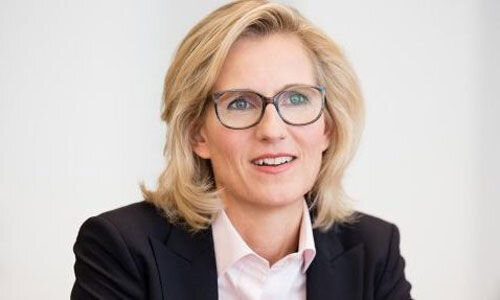4. Timely Interest Rate Turnaround
Recent policy moves by Western central banks to end the era of easy money also have a positive side. What one had taketh away, the other giveth. Interest income is returning and could provide a way for UBS to offset further deterioration in commission and service fee income. Although the group figures for the second quarter show only a 2 percent year-on-year increase in interest income, this masks deeper developments in the individual divisions. And we are very early in the interest rate cycle.
To illustrate this point, net interest income in the GWM unit rose by almost a quarter to $1.27 billion in the second quarter. A year earlier, it was at the same level as transaction revenue and accounted for just over a third of recurring net fee income. Now, at $793 million, this share significantly exceeds transaction revenue and contributes nearly half of fee income.
In the Swiss business, net interest income improved a more modest 5 percent. It is, however, important to note this metric extended its lead as the largest contributor in the firm's home market, accounting for nearly half of total revenues. UBS pointed out Tuesday that a further 1 percent rise in interest rates would add $1.8 billion in annual net interest income to its GWM and Switzerland businesses, mainly due to higher dollar and Swiss franc interest rates. With the Swiss National Bank recently joining other central banks in raising rates, that could be a positive development for UBS.
5. Home Field Advantage

(Image: UBS)
The Swiss business under head Sabine Keller Busse (pictured below) is once again the bedrock of UBS. In terms of earnings by region, the home market was the only one to achieve a slight year-on-year increase in the second quarter, with a plus of 1 percent. In terms of pre-tax profit, Switzerland was also clearly ahead of all other regions at $0.8 billion, and costs within the bank are lower than anywhere else as evidenced by a CIR in Switzerland of 58 percent.
In Personal & Corporate Banking, which primarily represents the Swiss private and corporate client business, UBS suffered a 13 percent drop in pre-tax profit to 398 million Swiss francs, although, revenues increased slightly in all areas. In wealth management, pre-tax profit in Switzerland was 7 percent higher than in the same period last year at $218 million.
6. Millions for Legal Provisions
UBS reported provisions for open legal cases of around $2.8 billion as of mid-year, which is a slight increase of 41 million from the end of the first quarter, although nbearly the same as the end of last year. During the second quarter, the bank made new provisions of $235 million. The GWM division accounted for $129 million and the investment bank a further $101 million. More specific details were not provided.
A total of $195 million was either paid out or reversed for litigation cases, while exchange rate fluctuations, had an impact on the figures. The biggest chunk of litigation is related to a case in France, where the bank was convicted of unlawful solicitation of customers and aiding and abetting money laundering. Around 1.1 billion euros ($1.15 billion) has been set aside for this.
7. The Digital Transformation

(Image: PD)
While Iqbal Khan (pictured above) will solely be holding the GWM division reins in the future, UBS's digital transformation is seen as CEO Hamers' turf. In view of the upheavals in the operating business, the bank made an effort on Tuesday to provide tangible information on the progress made. The scorecard so far reads one-third of Swiss private clients already use UBS's mobile banking, and in Switzerland, a new offering was launched under the Key4 brand. In Asia, the Circle One app was launched, which gives clients access to investment ideas. The hybrid wealth management mandate Myway saw inflows of $500 million, according to the bank, WHILE the greater part of the IT staff now works according to agile methods.
Because new applications cost money in the first place, advances in technology are dependent on the bank's operational success. Thanks to its comfortable revenues, UBS is still in a position to afford this expense without cutting back. But if the difficult market environment persists, the bank may have to reconsider.
Contributors: Claude Baumann, Andrew Isbester, York Runne und Samuel Gerber
- << Back
- Page 2 of 2



























